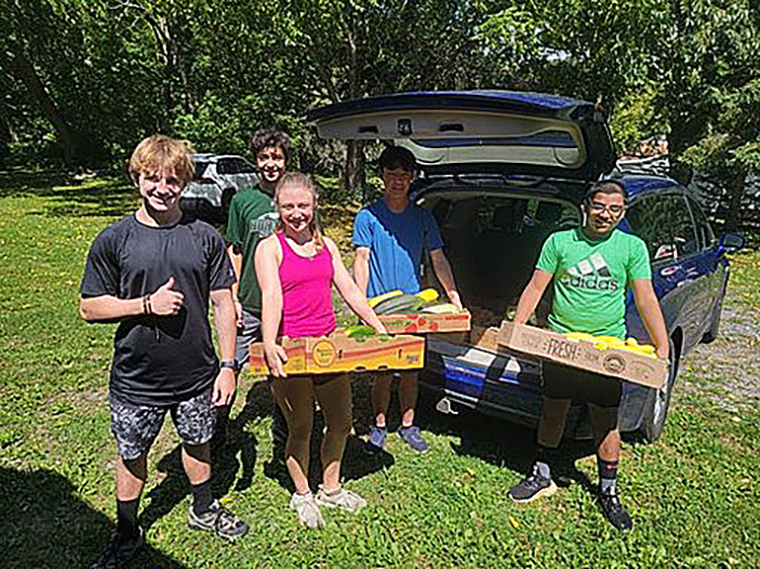From the Diocese of Syracuse “Care for Our Common Home” Task Force
By MaryAnne Barrington | Contributing writer
“Each community can take from the bounty of the earth whatever it needs for subsistence, but it also has the duty to protect the earth and to ensure its fruitfulness for coming generations.” (LS 67)
Increasing vegetable consumption in the average American’s diet is good for both our health and the environment. One recent study indicated that the use of animals for meat is causing twice the pollution of producing plant-based foods. For every pound of flesh, animals consume 16 pounds of vegetation. While a modest intake of meat represents an important strategy to avoid essential nutrient deficiencies, limiting its intake can reduce the development of a range of chronic diseases.
Poor nutritional food options result in unbalanced diets that can negatively affect overall health. Unfortunately, many poor families lack reliable sources to purchase affordable fresh produce. Two programs in our community, the Matthew 25 Farm (matthew25farm.org ) and Brady Farm (bradyfarm.org) provide free or affordable fresh, locally grown produce, to ensure that no Central New Yorker has to forgo fresh produce.
Matthew 25 Farm distributes 30,000 pounds of fresh produce to CNY food pantries yearly. Pantries value the opportunity to provide fresh produce to their clients and to educate them about the importance of healthy diets as well. Brady Farm uses a variety of methods to reach as many people as possible with its produce. These programs depend on volunteers to help with planting, maintenance and harvesting. Farmworkers utilize the time they spend with volunteers as an opportunity to educate them on growing and preserving their own fresh produce.
Both programs provide workforce development programs. Matthew 25 has a three-year training program for former refugees interested in starting their own farming business. Brady Farm’s goal is to use the farm as a way to offer both valuable farming experience and skill building to help people succeed in any job. When possible, they create gainful employment opportunities for community members who have a wide range of diverse educational and skill levels and are currently offering a paid Urban Farm Apprenticeship Program.
The development of home gardens must also include plants that are native to the area because native plants provide bountiful habitats for pollinator species. The bee population in North America has decreased significantly, with bees losing food sources due to the effects of pesticides, climate change and habitat destruction. Native plants and pollinators have evolved together and adapted to each other in their local conditions of climate, soil and seasons. They fit each other’s needs and feed each other’s well-being. Native plants provide food and energy to pollinators in nectar, pollen and seeds, while bees and other pollinators set the stage for next season’s successful plants. That’s why it’s a great idea to garden with native wildflowers.
All Saints Parish recently received a grant from the Victory Noll Sisters Small Grants Program to assist with planting of a native-plants garden. The goal of the grant program is to support projects in Catholic communities that advance the spirit of Laudato Si’ and promote diocesan, parish and other local creation-care activities. The goal of the All Saints project is to engage parishioners in healing the environment by increasing native plantings on the church property and educating others about ecological principles and practices.
Next month’s “Caring for God’s Creation” column will look at the Season of Creation in the Syracuse Diocese.







